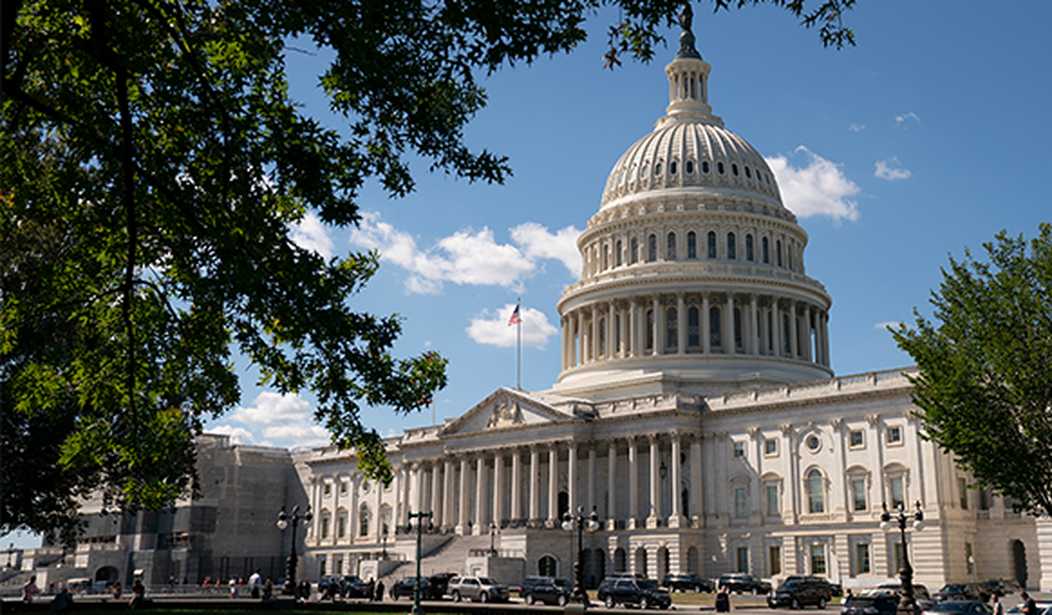As economy-wide inflation fueled by out-of-control federal spending continues to plague Americans, bloated government programs deserve refreshed scrutiny. On top of the list should be the 340B Drug Discount Program, which has ballooned beyond its intended purpose. In fact, one analysis estimates that within four years, it will eclipse both Medicare and Medicaid to become the largest federal drug program.
Signed into law by President George H.W. Bush in the early 1990s, the federal initiative gave drug makers the opportunity to provide eligible hospitals and clinics with medicine at a discounted price. Why? In a perfect world, the program serves as a safety net for patients in underserved areas—giving them the opportunity to get their hands on prescription medication at a more affordable price. But as with so many government programs, a lack of transparency, finicky guardrails, and determined special interests have allowed it to skid off the tracks.
Policymakers should restore the program so it can be around to serve vulnerable patients for years to come.
Guidance released by the federal government in 2010 gave the go-ahead to 340B hospitals and clinics to partner with multiple pharmacies to distribute drugs, rather than just one in-house or neighborhood pharmacy. While the intention was to expand the reach of 340B, it opened the door for special interests to begin benefiting from the program. Fast forward to 2022 and for-profit chain pharmacies are gaming the system at the expense of patients.
Rules are being treated more like guidelines.
A lack of transparency has allowed pharmacies to dispense drugs that were acquired through the 340B program at a fraction of the market cost while subsequently receiving a full payout from private insurance or Medicare Part D. As the waters are muddied, other patients who are supposed to receive discounts are lost in the shuffle. Since 2012, the Department of Health and Human Services has uncovered more than 1,500 instances of noncompliance across the board among 340B participating entities.
Recommended
The result is ballooning corporate profits while vulnerable patients struggle to receive the help 340B is intended to provide. According to a study from the Berkeley Research Group, the average profit margin of brand name 340B drugs distributed through third party pharmacies is 72 percent—more than three-times the cut collected by independent pharmacies dispensing non-340B medications.
The potential for money making has attracted some of the largest corporations to participate in the 340B program—notably CVS Health, Walgreens, and Walmart. The scale of this racket is hard to wrap your head around. The number of participating third-party pharmacies jumped by more than 4,000 percent between 2010 and 2020. And in many cases the pharmacies that are supposedly partnered with a local 340B hospital or clinic are hundreds if not thousands of miles away.
This year, CVS Health acknowledged how much the chain depends on their ties with 340B. Their annual report noted if participation in the program ran into hiccups, the company could be “materially” and “adversely” affected. Reacting on twitter, healthcare policy expert Ted Okon questioned, “[s]o, their profits are discounts patients don’t see?”
As a practicing physician, some of my own patients depend on 340B or other drug discount programs to access medication at more affordable prices. Policymakers should inject more transparency into the 340B program to hold participating hospitals, clinics, and pharmacies accountable. That way, we can rein in an overgrown government program while also helping vulnerable patients realize financial savings without corporate interests getting in the way.
Dr. Katarina Lindley is a board-certified family medicine physician, President-Elect of the Texas Chapter of the American Association of Physicians and Surgeons, and a member of the Job Creators Network.

























Join the conversation as a VIP Member